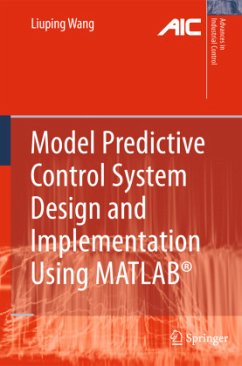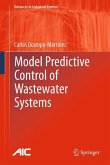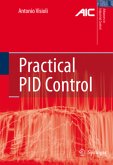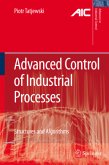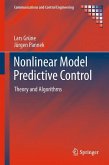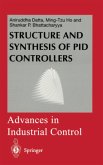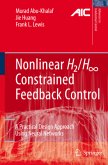Model Predictive Control System Design and Implementation Using MATLAB® proposes methods for design and implementation of MPC systems using basis functions that confer the following advantages: - continuous- and discrete-time MPC problems solved in similar design frameworks; - a parsimonious parametric representation of the control trajectory gives rise to computationally efficient algorithms and better on-line performance; and - a more general discrete-time representation of MPC design that becomes identical to the traditional approach for an appropriate choice of parameters.
After the theoretical presentation, coverage is given to three industrial applications. The subject of quadratic programming, often associated with the core optimization algorithms of MPC is also introduced and explained.
The technical contents of this book is mainly based on advances in MPC using state-space models and basis functions. This volume includes numerous analytical examples and problems and MATLAB® programs and exercises.
After the theoretical presentation, coverage is given to three industrial applications. The subject of quadratic programming, often associated with the core optimization algorithms of MPC is also introduced and explained.
The technical contents of this book is mainly based on advances in MPC using state-space models and basis functions. This volume includes numerous analytical examples and problems and MATLAB® programs and exercises.
From the reviews:
"This monograph gives an introduction to model predictive control and recent developments in its design and implementation using Matlab and Simulink. The book is aimed at a wide readership ranging from industrial control engineers to graduate students in the process and control disciplines." (IEEE Control Systems Magazine, Vol. 30, August, 2010)
"The book gives an introduction to Model Predictive Control (MPC), and recent developments in design and implementation. ... The book's approach is expected to appeal to a wide readership ranging from the industrial control engineer to the postgraduate student in the process and control disciplines. Both will find the MATLAB demonstrations of the control concepts a valuable tutorial route to understanding MPC in practice." (Karl-Heinz Waldmann, Zentralblatt MATH, Vol. 1200, 2011)
"This monograph gives an introduction to model predictive control and recent developments in its design and implementation using Matlab and Simulink. The book is aimed at a wide readership ranging from industrial control engineers to graduate students in the process and control disciplines." (IEEE Control Systems Magazine, Vol. 30, August, 2010)
"The book gives an introduction to Model Predictive Control (MPC), and recent developments in design and implementation. ... The book's approach is expected to appeal to a wide readership ranging from the industrial control engineer to the postgraduate student in the process and control disciplines. Both will find the MATLAB demonstrations of the control concepts a valuable tutorial route to understanding MPC in practice." (Karl-Heinz Waldmann, Zentralblatt MATH, Vol. 1200, 2011)

